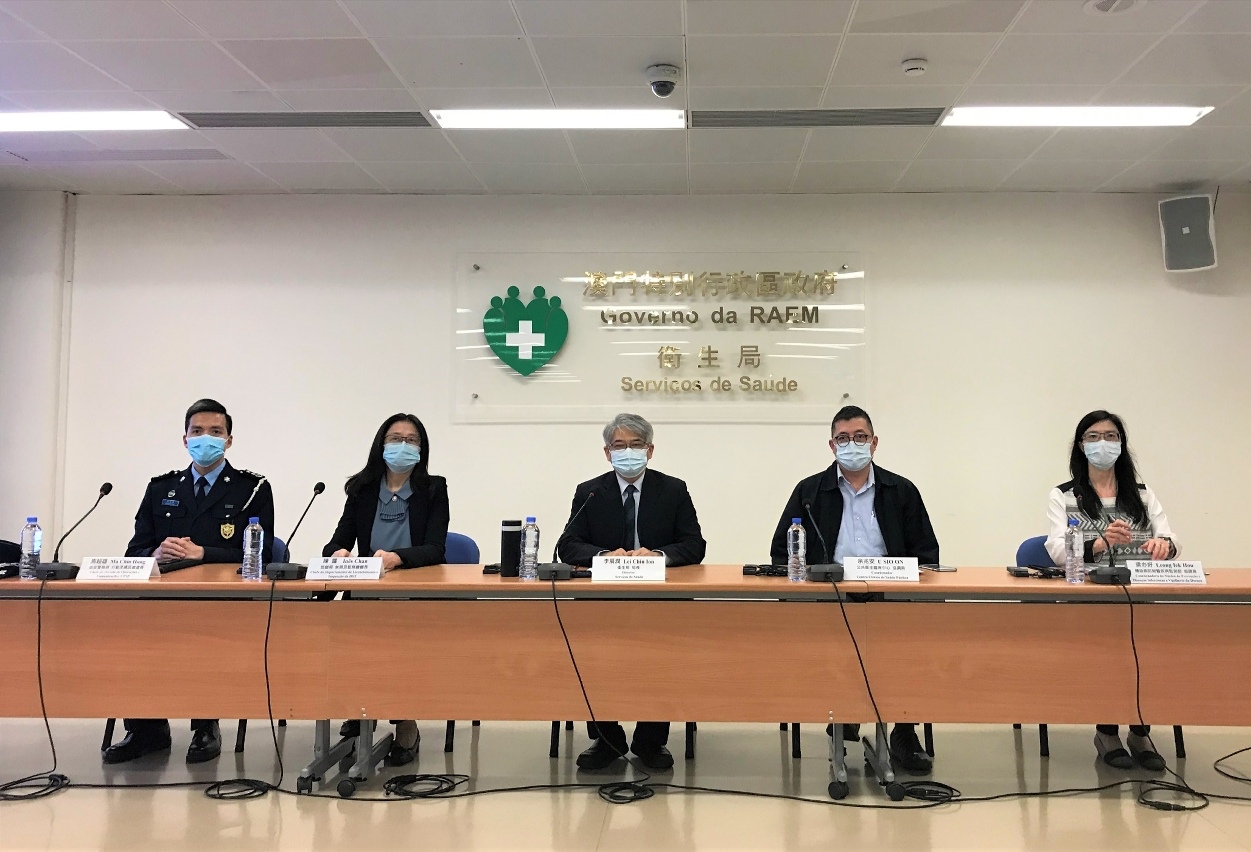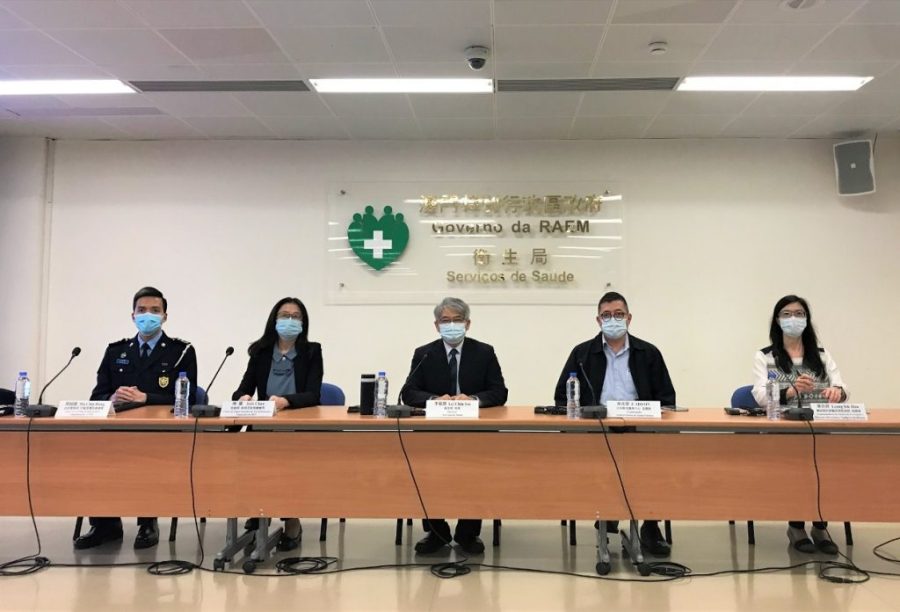Addressing Sunday’s daily press conference about Macau’s novel coronavirus (COVID-19) situation, the Health Bureau’s (SSM) Control of Communicable Diseases and Surveillance of Diseases Department Coordinator Leong Iek Hou announced that, with effect from midday Tuesday, all those who have been in Germany, France, Spain or Japan within the past 14 days prior to their entry into Macau will have to stay under medical surveillance for 14 days, considering that the number of confirmed cases in each of the four countries has increased sharply recently.
According to Leong, local residents can choose to go into the 14-day quarantine at their home, while non-Macau residents – visitors and non-resident workers – have to go into quarantine at government-designated hotel – Pousada Marina Infante in Cotai – at their own expense.
Late last month, identical quarantine measures were imposed by the Health Bureau on arrivals from South Korea, Italy and Iran.
According to previous government announcements, non-locals undergoing 14 days of quarantine at the Pousada Marina Infante hotel will have to pay a fee of 5,600 patacas, while local residents who opt for the 14-day quarantine at the hotel will be exempted from paying the fee.
The government has said that if a local resident believes that their flat cannot meet certain requirements set by the bureau, such as not having their own bedroom to stay, sleep and eat in, they can choose to go into the 14-day quarantine at the hotel.
Currently, all those who have been in the four countries (Germany, France, Spain or Japan) within the past 14 days prior to their entry into Macau must undergo a medical examination upon arrival here.
The government has set up two medical examination posts, one at the Macau Forum complex in Zape and the other at the Taipa Ferry Terminal. Border checkpoint arrivals are taken on designated buses to the medical examination posts for a medical examination which takes six to eight hours. Those arriving on the peninsula are usually taken to the Macau Forum, while the remainder are taken to the Taipa Ferry Terminal.
Since February 20, visitors who have been in Beijing, Chongqing, Guangdong, Henan, Shanghai or Zhejiang within the past 14 days prior to their entry into Macau must undergo a medical examination. The medical examination measure also covers local parallel traders who cross any of the Macau-Zhuhai border checkpoints “an abnormal number of times” per day. One parallel trader was found to have crossed the Macau-Zhuhai border up to 18 times per day, officials revealed last month.
Unlike the medical examination measure for the six provinces and municipalities on the mainland, which only covers visitors and local parallel traders, all local residents who have been in any of the four countries (Germany, France, Spain or Japan) are subject to the medical examination measure announced yesterday, which is being implemented only until midday tomorrow when it will replaced by the 14-day quarantine measure.
During Sunday’s press conference, Leong said that the government decided to implement the medical examination measure for the four countries for two days first before implementing the quarantine measure from midday tomorrow, after considering that certain number of Macau residents were still in the four countries so that they would need sufficient time to return to the city before the implementation of the quarantine measure.
Stopover enough for quarantine
Leong also said that the medical examination on Macau residents returning from any of the four countries will allow the bureau to keep following up their health status after the six-to-eight-hour medical examination. Leong underlined that even a transit stopover in South Korea, Italy, Iran, Japan, Germany, France or Spain is subject to the quarantine measure.
Health Bureau Director Lei Chin Ion noted that people can travel between many countries in Europe without the need to go through border checks. “Just like on the mainland, we [the local government] only classify several [six] provinces and municipalities as COVID-19 high-prevalence regions, and similar to Europe, people can travel between the provinces on the mainland without having to go through border checks,” Lei said, adding it was therefore important for those arriving in Macau to always tell local authorities the truth as to where they have been.
Lei said that the epidemic situation in Europe appeared to be deteriorating, adding that therefore the local government would possibly add several more European countries to the 14-day quarantine measure several days later, or even extend the quarantine measure to the whole of Europe.
Asked by a reporter whether the United States would be added to the quarantine measure, Lei said that the local government would make a decision depending on the “real” situation there. He was quick to add that the number of confirmed cases in the United States is still not increasing fast. Lei said that the local government’s decision on whether to impose the quarantine measure on any particular countries involved diplomatic relations so that the local government would need to communicate about the matter with the Office of the Commissioner of the Foreign Affairs Ministry in Macau and the consulates of the respective countries in Hong Kong each time.
Lei also said the local government would only impose the quarantine measure on arrivals from a particular country by taking into account the number of confirmed cases there, showing that the country is a high-prevalence region.
Meanwhile, Lei also said that the 57 Macau residents who were evacuated from Hubei province on Saturday and are staying for 14-day quarantine at the Public Health Clinical Centre in Coloane have had their first novel coronavirus test, all of which came out negative. Lei said this, however, did not mean they are all right, adding that they would undergo two more tests before they will be allowed to leave the centre.
(The Macau Post Daily/Macau News)
PHOTO © Government Information Bureau






